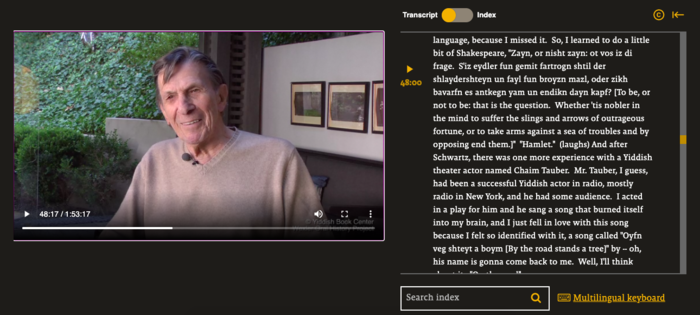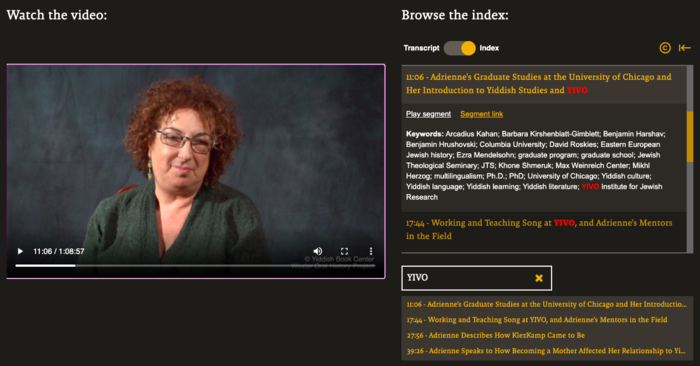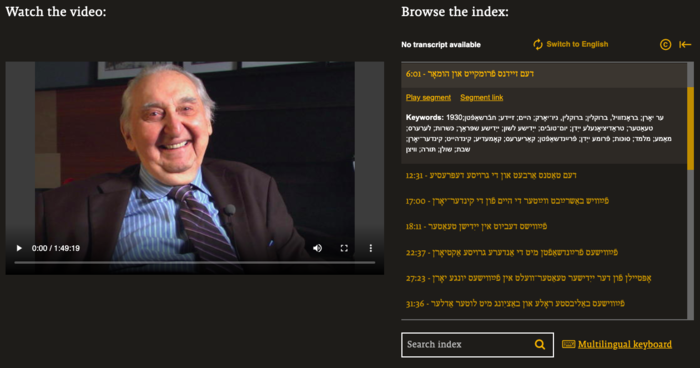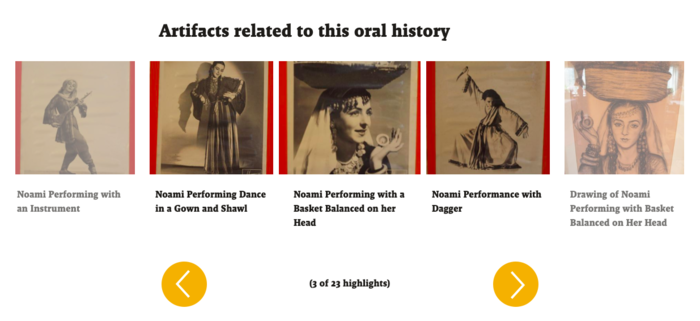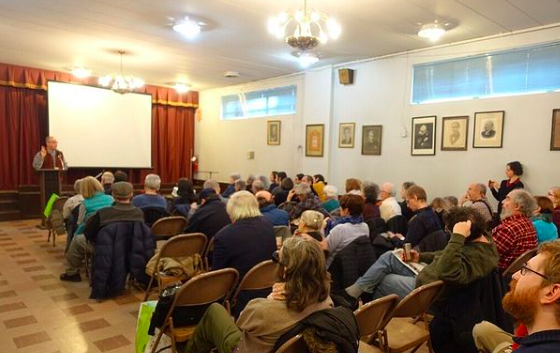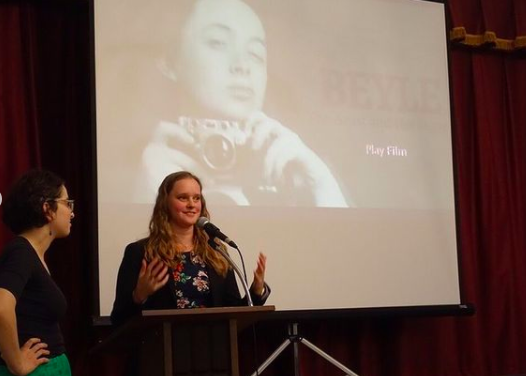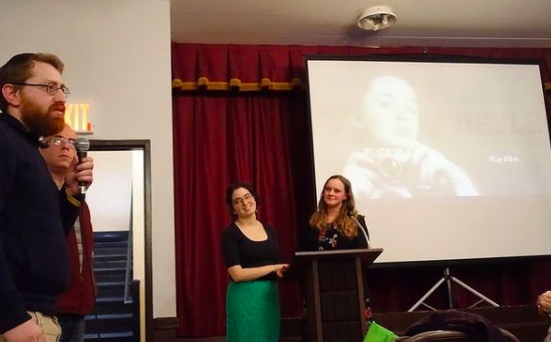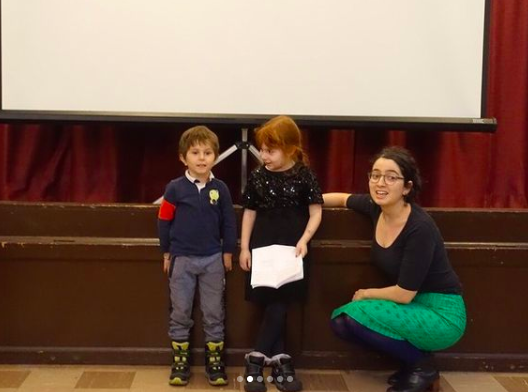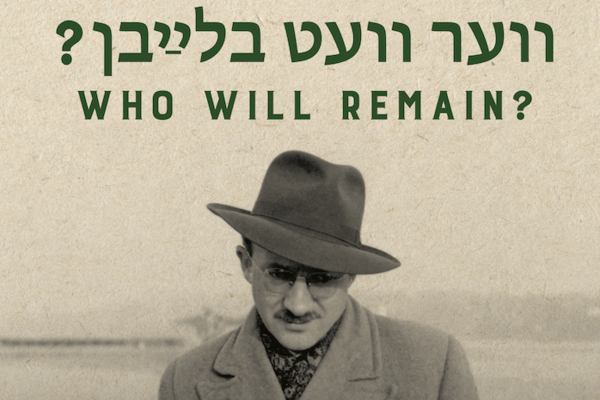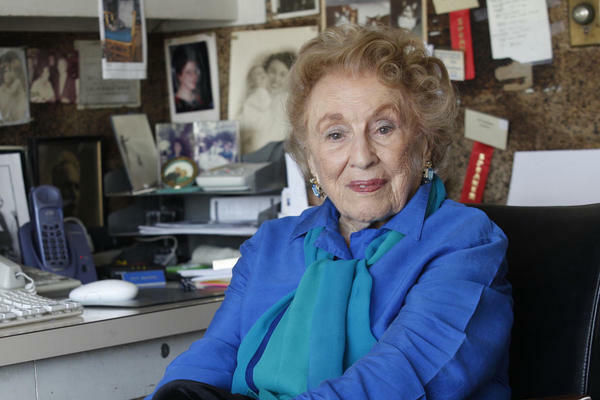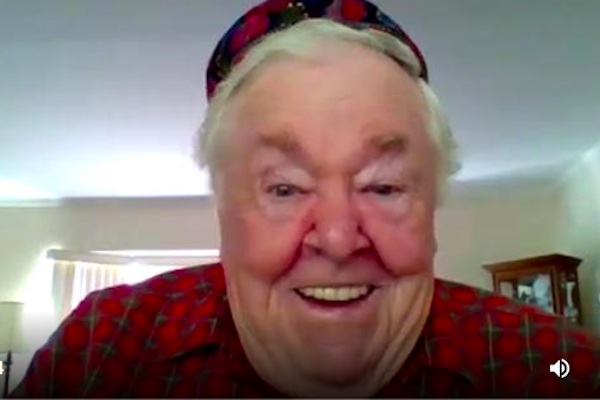2020: The Year in Review
News from the Yiddish Book Center’s Wexler Oral History Project
Tayere khaveyrim—Dear friends,
The year 2020 has been filled with unexpected shifts and challenges. But it has also been a year rich with newsworthy developments for the Yiddish Book Center’s Wexler Oral History Project. Read on to learn about exciting new features that enhance the accessibility of our online collection, the completion of our first feature-length documentary film, and the creative ways we’ve been adapting to the constraints of the pandemic, and enjoy highlights from the many stories we’ve collected this year.
Blaybt mir gezunt un shtark—I hope you are all staying well and strong,
Christa Whitney
Director, Yiddish Book Center's Wexler Oral History Project
Jump to...
Nu, vi geyt es? (How’s It Going?): By the Numbers
Completion of Our NEH Grant-Funded Work to Enhance the Accessibility of Our Collection
Staff Updates
Staff Attends Oral History Association’s Annual Meeting
Training a New Team of Oral Historians
Pre-Pandemic Fieldwork
Transitioning to Remote Work
BEYLE Screenings
First Feature-Length Documentary Film, Ver Vet Blaybn?, Complete!
Virtual Programs
Spotlight on Uses of WOHP Materials
Zikhroynom Livrokhe (Remembering Past Narrators)
Follow Along with Our Work Throughout the Year
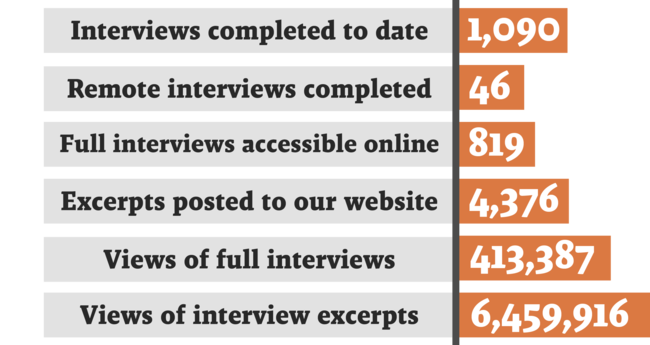
Completion of Our NEH Grant-Funded Work to Enhance the Accessibility of Our Collection
This year marked the third and final year of our NEH-funded grant to enhance the accessibility of our collection. Thanks to this funding and the work of our wonderful team of interns, volunteers, language specialists, and colleagues at the Yiddish Book Center, we were able to transcribe 400 English-language interviews, index over 600 interviews (including creating bilingual indices for Yiddish-, Russian-, Polish-, and Spanish-language interviews), and make accessible most of our over-5,300 digitized artifacts. This exciting work makes it easier to dig into the contents of each interview and opens up possibilities for new research and uses of the interviews by scholars, filmmakers, and the general public.
We want to thank the National Endowment for the Humanities for making this work possible, as well as the team at the Audio Transcription Center in Boston, Doug Boyd and the OHMS (Oral History Metadata Synchronizer) team at the University of Kentucky, the generous donors who helped us meet the match portion of our grant, and our wonderful team of staff, interns, volunteers, and language specialists, including Amber Clooney, Asya Vaisman Schulman, Mindl Cohen, Eitan Kensky, Agnieszka Ilwicka, Zvi Jankelowitz, Sophia Shoulson, Jessica Parker, Hankus Netsky, Janina Wurbs, Moriel Rothman-Zecher, Josie Naron, Karen Greendale, Shlomo Enkin-Lewis, Joshua Price, Sara Karz Reid, Kaley Oliver, Anton Boutkov, Zohar Berman, Hannah Morse, Nina Pick, Sophie Spencer-Zavos, Erie Svenson, Benjamin Wetherbee, and Joanna Spyra.
You can view a Q&A with project coordinator Carole Renard about the completion of the NEH-funded project and check out our new user guide for more details about how to browse and search our collection.
Staff Updates
In January, Greg Bell officially joined the Wexler Oral History Project as our new assistant editor. We greatly appreciate the flexibility and dedication that he has shown in the face of the unexpected changes and transitions that this year has presented, and we’re excited to see where our work together takes us.
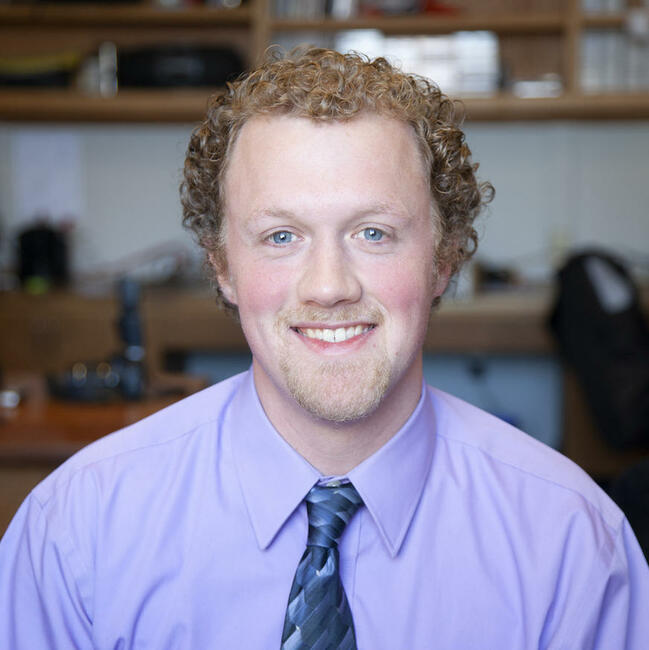
"What a strange year to start here! January 2020 seems like it was years ago. A lot has changed since then, but that hasn’t stopped us from uploading new videos on a weekly basis. I’m looking forward to continuing our output of content, and I’m very excited to see what the future holds."
—Greg Bell, assistant editor for the Wexler Oral History Project
Our wonderful administrative assistant, Emily Densmore, left the Yiddish Book Center in May to take a position with the National Academies of Sciences, Engineering, and Medicine as an editorial assistant for their scholarly journal. Emily brought her passion for history and Yiddish to her work every day, and her warm and friendly energy brought much joy to her colleagues here at the Center. We miss her but are enjoying hearing her updates from Washington, DC.
In October, after completing the NEH-funded work, Carole Renard transitioned into the role of project coordinator for the Wexler Oral History Project.
Staff Attends Oral History Association’s Annual Meeting
This October, Christa, Carole, and Greg attended the Oral History Association’s annual meeting, which was held virtually this year. Eager to share what they had learned about bilingual indexing over the past couple of years with fellow oral historians and archivists, Carole and Christa led a workshop entitled, “The More [Metadata], The Merrier: Bilingual Indexing in OHMS.” Despite being held virtually, the OHA conference provided a wonderful opportunity to continue forging connections with other oral historians and to stay up to date on developments in the field that will help us further enhance our own practices and workflows.
Training a New Team of Oral Historians
Christa trained a new group of oral historians in January for our Field Fellows program. These new oral historians, all alumni of Yiddish Book Center educational programs, will help expand the Project’s reach and capacity to collect precious stories about Yiddish language and culture and Jewish experience. Several in the cohort know Yiddish, Russian, and other languages, allowing us to continue to record more interviews in Yiddish and expand to interview people in Russian and other languages when that is the most comfortable for them. We are especially grateful for the flexibility they have shown as we transitioned to remote interviewing in the midst of their training.
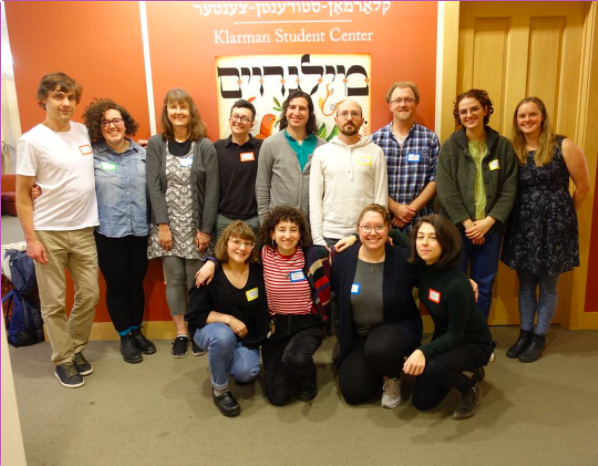
A big thank you and welcome to our new team of Field Fellows: Marianne Tatom (Seattle, WA), Elina Alter (Brooklyn, NY), Sophie Edelhart (Brooklyn, NY), Micah Langner (Brooklyn, NY), Nadja Shannon-Dabek (Amherst, MA), Anton Boutkov (Springfield, MA), Sophie Bartholomew (Philadelphia, PA), Daniel Holtzman (Philadelphia, PA), Sarah Quiat (Boston, MA), and Samantha Zerin (Providence, RI).
Pre-Pandemic Fieldwork
In February, we traveled to Florida and interviewed Miriam Hoffman, Yiddish activist, writer, and former Yiddish professor at Columbia; Ruth Zuckerbrod and Elliot Isban, the daughter and son of Yiddish writer Shmuel Isban; Ricki Greenblatt, whose family was the model for Chaver Paver’s Laybtsik and Vovik Yiddish children’s stories; and Henry Bialer, a 96-year-old Holocaust survivor born outside of Lodz to an aristocratic family who eventually immigrated to the US and owned the largest Chevrolet dealership in the Tristate Area.
We also traveled to Michigan in February for a residency at the University of Michigan in Ann Arbor, as part of their residential fellowship’s 2019–2020 theme, “Yiddish Matters.” There, Christa interviewed six Yiddish scholars on the faculty or in residence at the university, which is known for its Yiddish program. She also screened a work-in-progress version of our new documentary film on Avrom Sutzkever, Ver Vet Blaybn? (Who Will Remain?) in conjunction with the residential fellowship program.
Our Field Fellows Agnieszka Ilwicka and Nina Pick also collected oral history interviews from the beginning of the year through mid-March. Highlights included Agnieszka’s interview with Dan Slobin, professor emeritus of the socio-linguistics department at the University of California, Berkeley, and Nina’s interview with rabbi, scholar, and photographer Joshua Plaut.
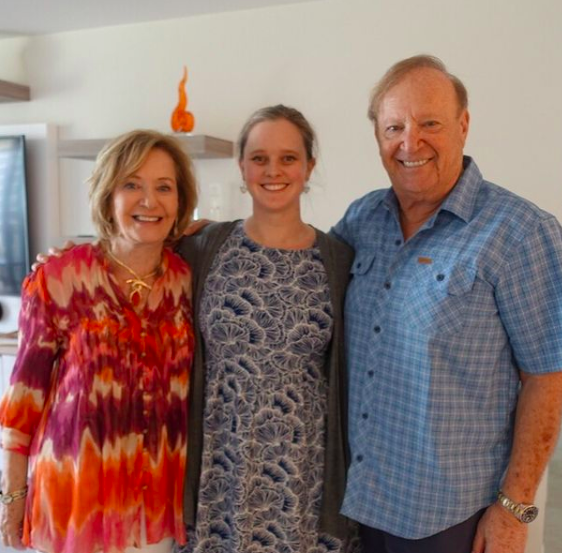
Transitioning to Remote Work
After the Yiddish Book Center closed its doors to the public in March due to the pandemic, we spent time in conversation with other oral historians about how to transition to conducting oral history interviews remotely. We decided to record interviews on Zoom, sending microphones to our narrators ahead of time whenever possible in order to increase the audio quality of the interviews.

Our first remote interview was conducted in May by Hankus Netsky with David Shiff, a cantor and former Yiddish radio host. Since then, other remote interviews have included:
- Paris-based Hazel Carr, painter and granddaughter of Yiddish writers Esther Kreitman and A. M. Fuchs
- Renata Singer, president of the Kadimah Yiddish Cultural Centre & National Library in Melbourne, Australia
- Rabbi Motel Shechet, a natural storyteller who grew up in Cuba to Eastern European-born, Yiddish-speaking parents, then came to the US and worked as a shoykhet in the Midwest
- Veronica Belling, Yiddish theater scholar and translator based in Cape Town, South Africa
- Leona Schwartz, daughter of Yiddish actor Eli Mintz (Edward Satz), niece of the famous Yiddish actor Ludwig Satz, and a performer of Yiddish songs herself
- Betsy Marks, artist based in Birmingham, Mississippi, who has lately been using Yiddish in her art
- Judith Wouk, Kohenet who grew up hearing Yiddish in her Unitarian home
- Maxine Bookless, grew up in a Yiddish-speaking home and active member of local Jewish community in Pittsfield, Massachusetts
- Deena Metzger, daughter of Yiddish writer and kabbalist Arnold Posy
- Riv Shapiro, Kohenet and Jewish musician based in the SF Bay Area, California, who is working on a multimedia project about recovering lost stories in her Jewish family
BEYLE Screenings
Last year we officially completed our documentary film, BEYLE: The Artist and Her Legacy, about Yiddish artist and activist Beyle Schaechter-Gottesman (1920–2013).
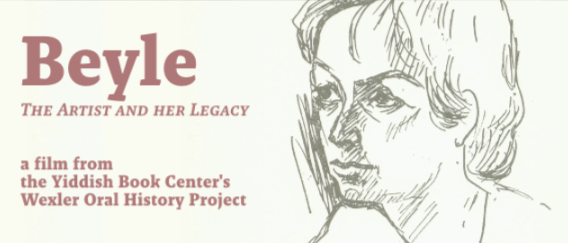
BEYLE was screened several times in the early months of 2020, including at the Jewish Club in Beverwyck Independent Living in Slingerlands, New York; at the Bet Am Shalom Synagogue in White Plains, New York; and at the Smith College Poetry Center in Northampton, Massachusetts.
On February 16, the film had its New York premiere at the Sholem Aleichem Cultural Center in the Bronx. The New York premiere was very special because Beyle was strongly tied to this community during her life and the neighborhood that it’s in—known in Yiddish as “Bainbridgivke”—is where she lived and established a meeting place for Yiddish speakers. The screening garnered a full house, and the film was followed by a talkback with Christa and with Beyle’s granddaughter, Esther Gottesman (who is in the film). Two of Esther’s students (ages 3 and 5) also sang some of Beyle’s songs for the audience.
July 2020 marked our first virtual public screening of BEYLE, organized by the Jewish Public Library and co-sponsored by the Yiddish Book Center and KlezKanada. Asya Vaisman Shulman and Aron Gonshor performed some of Beyle’s songs after the screening, followed by a talkback with Beyle’s granddaughter Esther Gottesman and Christa, moderated by Sebastian Schulman. The recording of the event has been viewed over 1,200 times on Facebook and remains available for viewing.
YAAANA (The Yiddish Arts and Academics Association of North America) also hosted a screening of BEYLE in July as part of the Mame Loshn Festival of Female Creativity in Yiddish, with an introduction from Christa and a Q&A after the film with Beyle’s son Itzik Gottesman, Janina Wurbs, and Miriam Isaacs.
If you’d like to organize a virtual screening of the documentary film, email us at [email protected].
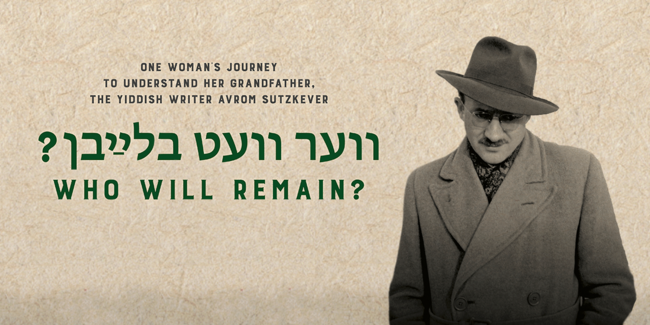
Our first feature-length documentary about Yiddish poet Avrom Sutzkever, Ver Vet Blaybn? (Who Will Remain?), is officially complete! This film has been in the works for more than five years and has truly been a labor of love.
Sutzkever (1913–2010) was an acclaimed Yiddish poet—described by The New York Times as the “greatest poet of the Holocaust”—whose verse drew on his youth in Siberia and Vilna, his spiritual and material resistance during World War II, and his post-war life in the State of Israel. His granddaughter, Hadas Kalderon, whose native language is Hebrew and who must rely on translation of her grandfather’s work, is nevertheless determined to connect with what remains of the poet’s bygone world and confront the personal responsibility of preserving her grandfather’s literary legacy. Woven into the documentary are family home videos, newly recorded interviews, and archival recordings, including Sutzkever’s testimony at the Nuremberg Trial. Recitation of his poetry and personal reflections on resisting Nazi forces as a partisan fighter reveal how Sutzkever tried to make sense of the Holocaust and its aftermath. As Kalderon strives to reconstruct the stories told by her grandfather, the film examines the limits of language, geography, and time.
This fall we began submitting the documentary to film festivals near and far, a process that can take quite a while—which means we’re unable to share the full film with you just yet. We anticipate releasing the film to a wider audience in winter 2021–2022. In the meantime, however, please enjoy the trailer and share widely:
And follow the film’s social media accounts for updates:
Facebook: facebook.com/WhoWillRemainFilm
Instagram: @whowillremain
Twitter: @WhoWillRemain
And if you have any leads on places that might be interested in screening this very special documentary, please email us at [email protected].
Virtual Programs
- On November 5, in a multimedia presentation entitled “Coming to America: Jewish Immigrant Stories of Encounter and Adaptation,” Christa shared and discussed video excerpts of oral histories related to stories of Jewish immigration and adaptation collected over the past decade as part of the Center’s Wexler Oral History Project.
- "Enhanced Access to the Oral History Collection: A Virtual Tour": On November 15, Carole and Christa offered a virtual tour of the Wexler Oral History Project’s online collection to explain how to use the new enhanced features to the collection made possible through the 2017–2020 NEH grant.
- In a virtual event on December 6 called "Celebrating A Decade of Story Collecting: The Yiddish Book Center’s Wexler Oral History Project," Christa reflected on the past decade of collecting stories about Yiddish language and culture through interviews with people of all ages and backgrounds, sharing some of the most compelling stories in celebration of the Project’s milestone anniversary.
Spotlight on Uses of WOHP Materials
We recently did an informal call for feedback from people who use Wexler Oral History Project interviews in their research and work and found that people make use of the interviews and other materials in our collection in a variety of ways. Some recent highlights (among many) include:
- The Yiddish Book Center’s new introductory Yiddish textbook, In eynem, uses many excerpts from our oral history interviews in its supplementary materials.
- The Jüdisches Museum Berlin (Jewish Museum Berlin) will use an interview excerpt in their new permanent exhibit, Interactive World Map of Languages of the Jewish Diaspora.
- The 2020 documentary film We Remember . . . about the history of Jews in Izyaslav, Ukraine, produced by the Tsal Kaplun Foundation, features a segment of one of our interviews.
- An article featuring selections from the Wexler Oral History Project appeared in a 2020 issue of Gazeta, a quarterly publication of the American Association of Polish-Jewish Studies and Taube Foundation for Jewish Life & Culture.
- Many educators have used our oral history interviews in their various classes. These include Jessica Kirzane, lecturer at the University of Chicago; Abraham Lichtenbaum, former director of Fundación IWO—Instituto Judio de Investigaciones in Buenos Aires, Argentina; Ofer Dynes, assistant professor of Yiddish studies and East European Jewish studies at the Hebrew University of Jerusalem; and Isaac Bleaman, assistant professor in the department of linguistics at UC Berkeley and director of the Sociolinguistics Lab at Berkeley.
Zikhroynom Livrokhe (Remembering Past Narrators)
Anita Garlick, z’’l, Yiddish Book Center zamler in Sullivan County, New York, died on March 13. The daughter of immigrants from Russia, Anita grew up in New York during the Great Depression with her parents, grandparents, and aunts and uncles. In her interview, she describes the closeness that she felt with her grandparents, explaining how her relationship with them led her to associate Yiddish with the language of love. She then goes on to describe the Borscht Belt, her experience marrying a funeral director and living in Monticello, New York, and her evolving relationship to Yiddish language and culture. Watch her full interview and excerpts.
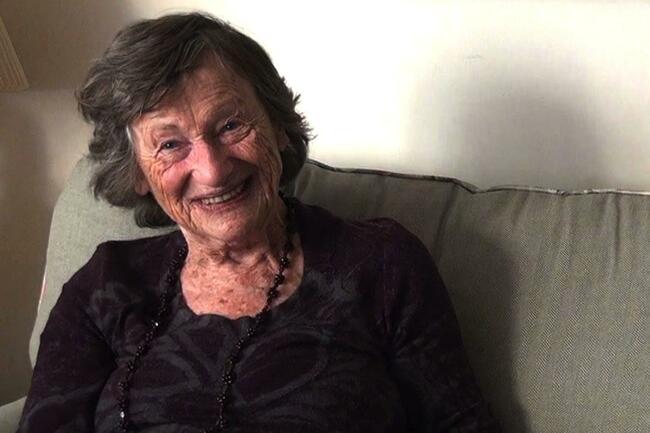
David Shneer, z’’l, professor of history and religious studies and director of the Jewish studies program at the University of Colorado at Boulder, died on November 4. David was a faculty member in the Yiddish Book Center’s Steiner Summer Yiddish Program and was an important mentor to countless Yiddish students and scholars. In his 2011 interview, David reflected on his years of involvement at the Yiddish Book Center, the connections between queer and Yiddish identities and studies, and his own journey to Yiddish and the topics of Jewish history he studied. Watch his full interview and excerpts.
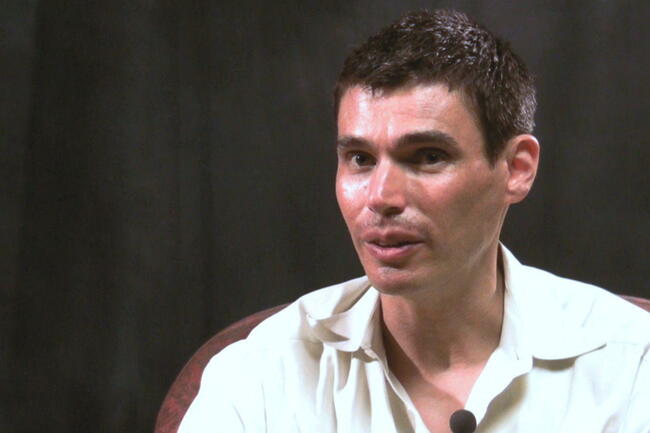
Dina Claire, z’’l, singer who performed on Broadway and in the Borscht Belt, died on April 10. The granddaughter of Russian Jewish immigrants, Dina was born in Newark, New Jersey, and gifted with a magnificent singing voice. She recorded her first single at the age of six, and at ten she sang for First Lady Eleanor Roosevelt. In her interview, she shares her memories of her various performances, discusses her relationship to Jewishness throughout her life, and performs some songs. Watch her full interview and excerpts.
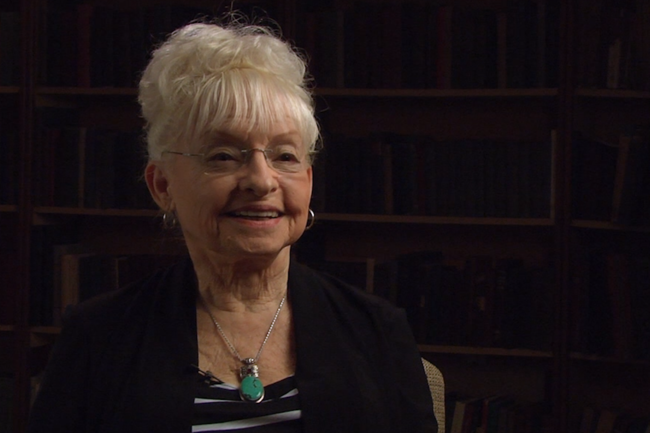
Evelyn Goodman, z’’l, died on June 7. Evelyn, a descendant of Rebbe Levi Yitchok, was born in Chicago, Illinois, in 1928 and moved to New York City with her family at the age of four. In her interview, she shares memories of growing up in Brownsville and discusses her connection to Yiddish, from her appreciation of Yiddish theater to the time Yiddish saved the day during her travels in Turkey. Watch her full interview and excerpts.
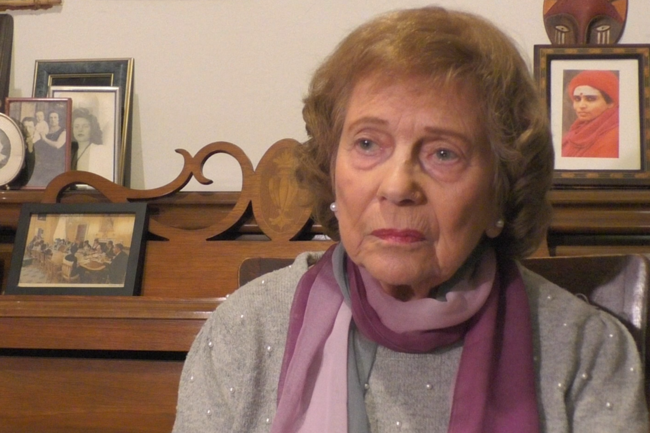
Frances Morrill Schlitt, z’’l, retired social worker originally from Auburn, Maine, died on May 9. Frances was the daughter of Jewish immigrants from the Ponevezh (Panevėžys) area of Lithuania. In her interview, she described growing up in Auburn and then Dorchester, Massachusetts, attending Brandeis University in the first decade of its existence, and meeting her husband, Jacob, z"l (who we also interviewed in 2010) while they both worked for the Jewish Labor Committee. She reflected on the way Judaism changed over her lifetime, including growing gender equality among some religious movements. Watch her full interview and excerpts.
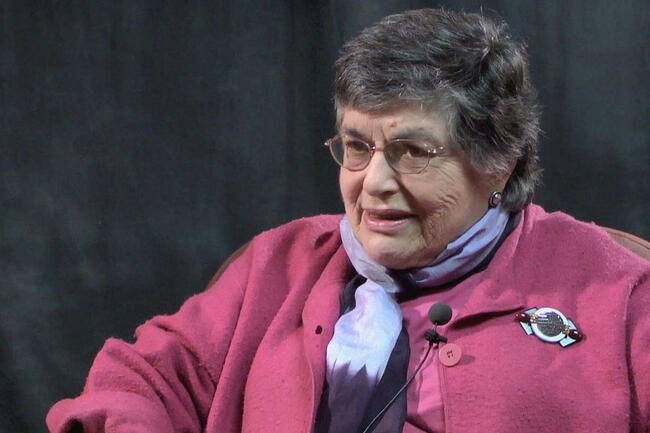
Gloria Weiner Weiss, z’’l, former Yiddish child actress on the radio and stage, died on March 10. Gloria’s childhood in Roxbury, Massachusetts, was marked by her career as a child performer for both radio and Yiddish theater. She shares her memories of those experiences in her interview, as well as her reflections on Yiddish language and culture and her connections to Jewishness and Judaism throughout her life. Watch her full interview and excerpts.
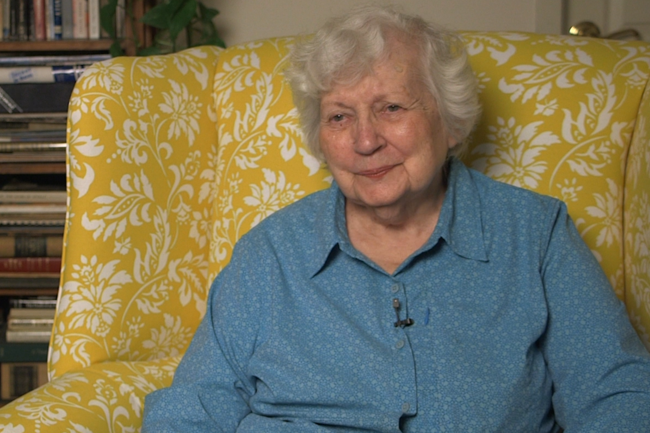
Gregorio Brilovich, z”l, was one of the first people interviewed for the Project back in 2010. Born in Latvia, he immigrated to South America at the age of four. In his interview, he recalled how his parents struggled to make a living in the dairy industry in Uruguay and then Chile. Gregorio studied to become an engineer at the University of California, Berkeley, returned to Chile where he met his wife, and then settled back in California for the second half of his life. He died on March 9 at the age of 99. Watch his full interview and excerpts.
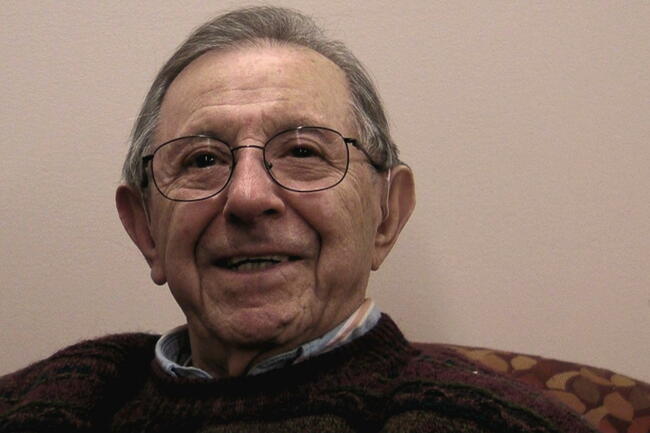
Paul Mintus, z”l, died on December 27. Paul, who grew up in the Bronx and loved dancing and folk music, was a documentary filmmaker on Native American reservations. In his interview, he reflected on his parents’, as well as his own, relationship with Yiddish, shared memories of his time on the reservation, and spoke about the importance of knowing and connecting with one’s roots. Watch his full interview here.
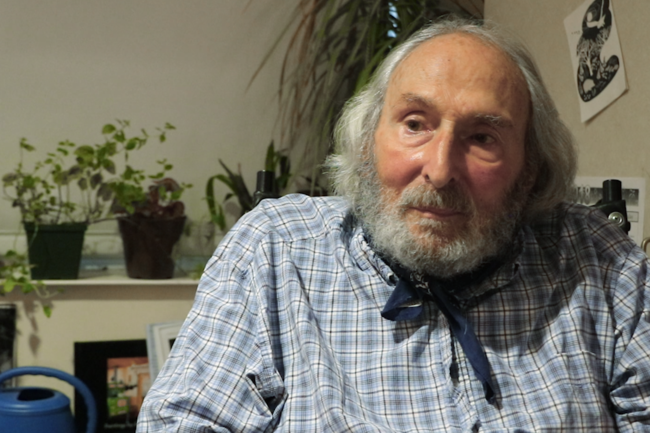
Ruth Warshavsky Zeitlin Dropkin, z’’l, poet and daughter-in-law of Celia Dropkin, died on November 25. In her 2016 interview with the Wexler Oral History Project, Ruth reflected on her childhood in New York City and described the experience of meeting her husband, John Dropkin. She went on to share various memories and reflections on the work of her mother-in-law, the famous Yiddish poet Celia Dropkin, and to discuss her own involvement in translating some of those works. Finally, Ruth talked about her own writing projects and her relationship with Yiddish. Watch her full interview and excerpts.
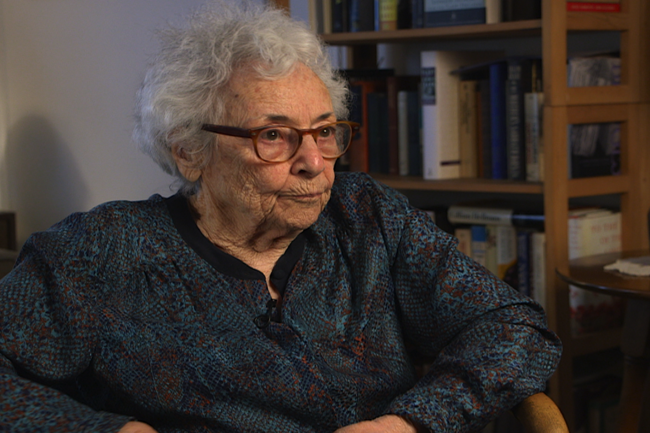
Sara Tepper, z’’l, Yiddish speaker born in Poland, died in the spring. In her interview, Sara describes her family and shtetl (small town in Eastern Europe with a Jewish community) of Kletsk in the Russian Empire. She recounts her childhood experiences as an immigrant to the United States and her memories of living in the Coops Housing Cooperative and discusses the role of Yiddish throughout her life. In addition to being an amazing storyteller, Sara was a delight through all of our ongoing correspondence, and she developed warm relationships with many among our staff. Watch her full interview and excerpts.
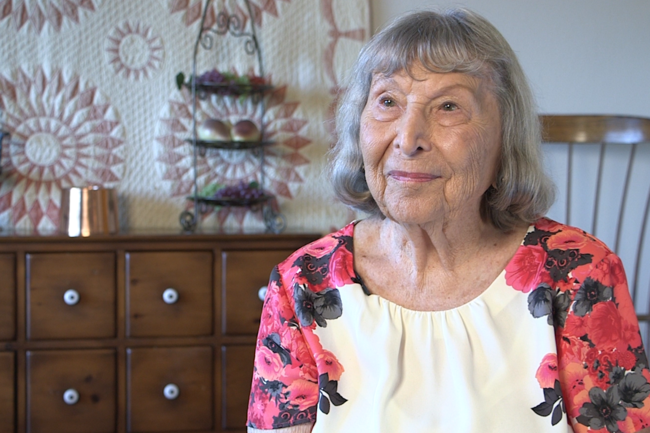
Shura Grinhoyz-Turkow, z’’l, Yiddish actress and activist born in Bialystok, died on September 7. Shura got her start on the Yiddish stage as a young woman in Bialystok and performed with the famous Ida Kaminska Yiddish Theater in Warsaw in the post-war years. She was a tireless advocate of Yiddish culture in Israel, where she lived the second half of her life. We had the fortune of getting to know and interview Shura in Tel Aviv in 2014. Watch her full interview and excerpts.
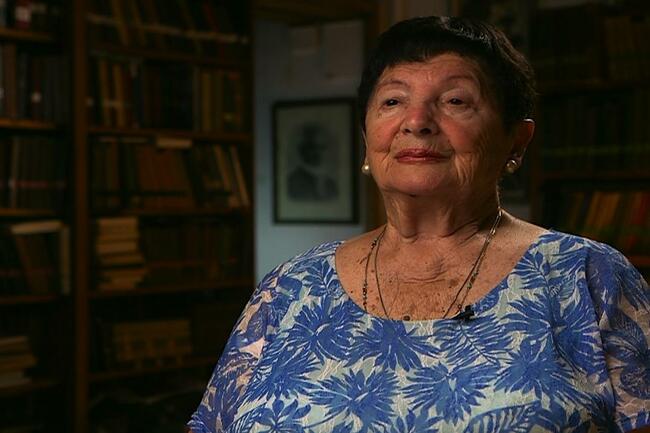
William (Volfke Zev Gdud) Good, z”l, physician and survivor of the Holocaust, died on December 25. Born in 1924, he grew up near Vilna and, after World War II, studied medicine in Italy before eventually immigrating to the United States. William spoke ten languages and was a beloved community physician in La Puente, California, where he was known for his kindness, humor, and devotion to his patients. He was interviewed for the Project in 2016 by Christa Whitney, with whom he also traveled to Lithuania in 2019 as part of the Helix fellowship. In his 4-hour interview, William shares many stories of his childhood in Lithuania, as well as memories of the Holocaust and his experiences in Italy and the United States. Watch his full interview and excerpts.
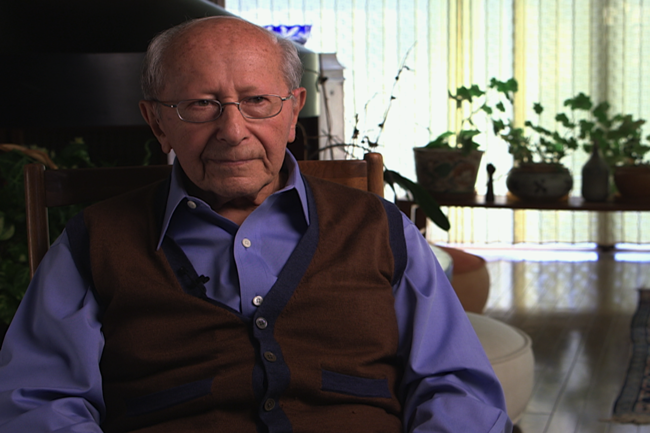
Zeva Greendale Roschko, z’’l, Yiddish teacher, former public-school teacher, and activist, died on July 28. Zeva was born in Brooklyn, New York, in 1925 to parents who had come to the United States from Ukraine and Poland. She grew up immersed in Yiddish culture, studying Yiddish through mitlshul (high school) and attending Camp Kinderland, which had a profound impact on her. In her interview, Zeva also discusses her experiences as a teacher in the New York City public school system, her connection to synagogue life through her second husband, and her love of Yiddish folk music. Zeva remained dedicated to Yiddish language and culture throughout her life, continuing to teach and promote Yiddish through her later years. Watch her full interview and excerpts.
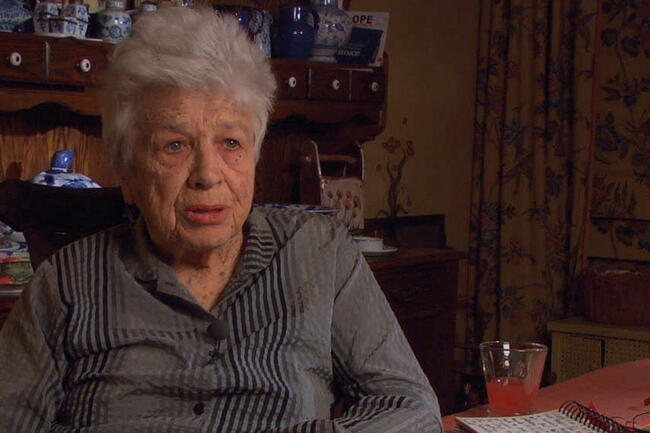
To continue following along with our work as it develops:
- Subscribe to our newly revamped emailer at yiddishbookcenter.org/oral-history/updates.
- Subscribe to our YouTube page @yiddishbookcenter to be notified whenever we upload new interview highlights.
- Follow us on social media for weekly content on:
- Twitter at @YiddishStories
- Facebook at facebook.com/WexlerOralHistoryProject
- Instagram at @yiddish_stories.
- And of course, browse our full collection or search for something specifically of interest to you on our website anytime at yiddishbookcenter.org/tell-your-story.

